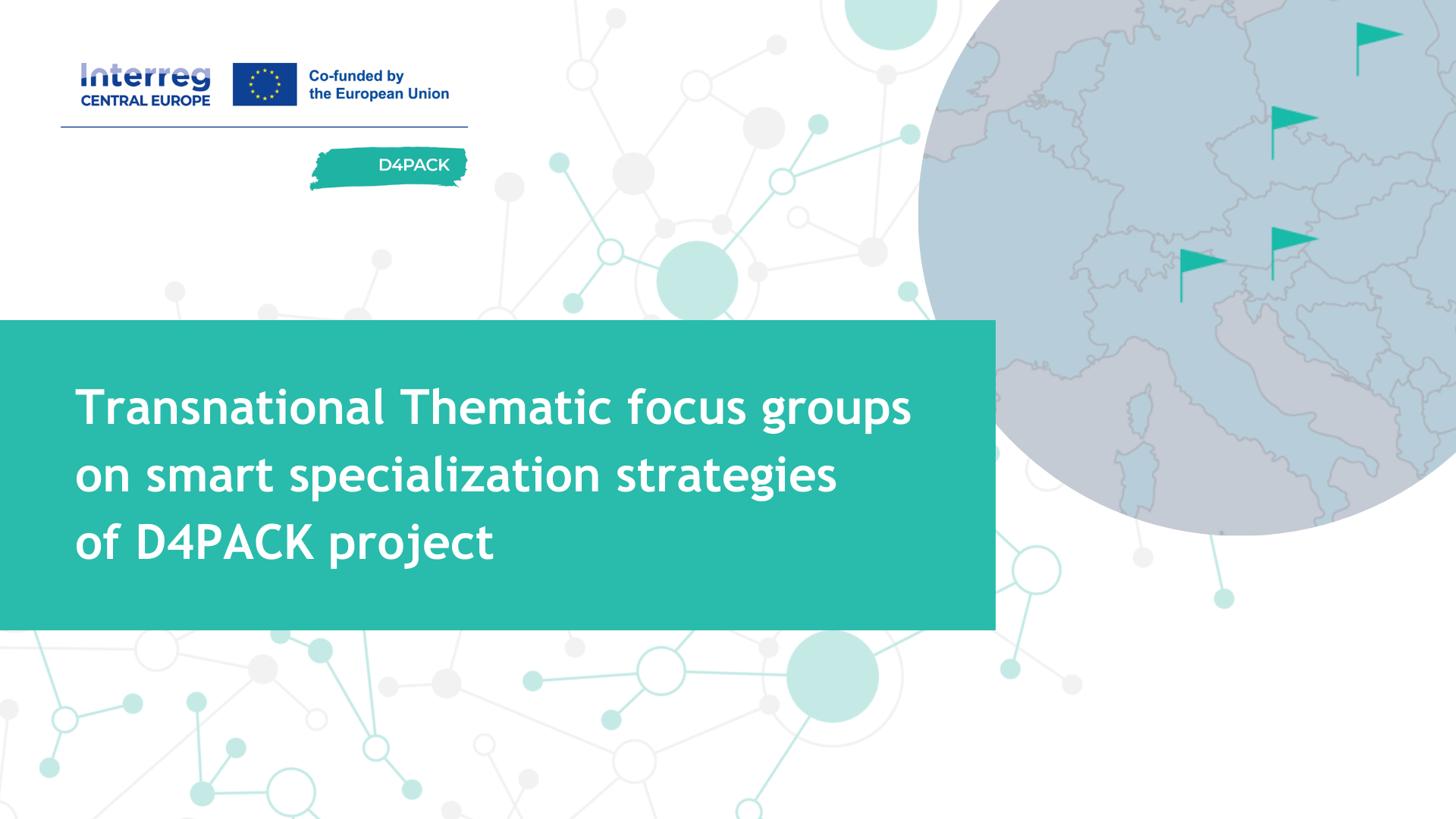Within Activity 1.4, a meeting titled “Transnational thematic focus groups on smart specialization strategies” was held on Tuesday 28 January. The aim of this meeting was to promote dialogue and exchange of views between public authorities from Hungary, Slovenia, Czech Republic and Northern Italy on the smart specialization strategies they have adopted to promote innovation in food packaging.
During the meeting, the following participants presented:
- Ms Valentina Bottega, Project Manager of D4PACK – CEVI S.r.l. Confindustria Verona (IT), who gave a brief presentation of the D4PACK project.
- Ms Jana Fišerová, Secretary NIP VI – Sustainable Agriculture and Environmental Sectors, and Mr Martin Forejt, Department of Digital Economy and Smart Specialization (CZ), presented various aspects of the S3 strategy, which will be approved by the Czech Government in 2021 and by the European Commission in 2022. The main objectives include sustainability, innovation, and cooperation between regions with different thematic priorities, including advanced materials, automation, green technologies, and sustainable packaging.
- Mr. Gorazd Jenko, Ministry of Cohesion and Regional Development (SL), presented the Slovenian strategy for smart specialization (S3) strategy, focusing on the transition from phase S4 to S5. Key objectives included improving global competitiveness, increasing entrepreneurial activity, and promoting the green transition.
- Mr Marco Sacco, Director of Research Clusters and Networks Organizational Unit – Research Innovation and Energy Competitiveness Directorate – Economic Policies, Human Capital and Community Programming Area Veneto Region (IT). Mr Sacco presented the Smart Specialization Strategy (S3) of the Veneto Region for the period 2021-2027, with a special focus on the promotion of sustainable and green packaging. The S3 strategy aims to strengthen the innovative capacity of the region by investing in research, development, and sustainability.
- Ms Krisztina Sóvágó, Head of S3 Project Management Office – National Research, Development and Innovation Office (HU). She presented Hungary’s S3 strategy for 2021-2027, which includes national strategies for digitalization, SME development, and research and development. Priorities include a resource-efficient economy and the reduction of waste and emissions.
After a brief presentation of the project and an overview of each country’s S3 strategy, the speakers discussed aspects related to financial tools available for SMEs in their regions and presented successful projects carried out by SMEs on the topic of green and sustainable transition. For example Veneto Region presented Sustain4Food, a project that developed sustainable packaging for the Veneto agri-food sector, reducing the use of plastic and including a prototype wine bottle and a biosensor for food preservation.
The event represented a valuable opportunity for discussion between the four economic entities involved in the project. In this way, it was possible to initiate an essential dialogue to guide future incentives for innovation. Furthermore, the event proved to be a crucial moment to learn from the best practices of other countries.
